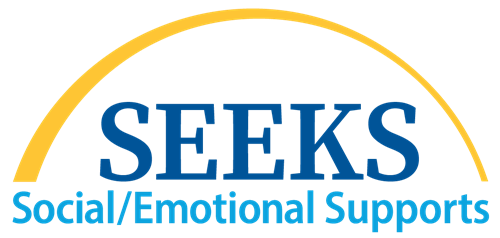Administrative Services
Page Navigation
- Administrative Services
- Evaluation, Grants & Data
- Finance & Business Operations
- Human Resources
- Marketing & Strategic Communication
- Project SEEKS SES
- Technology Services
- Safety & Security: Services & Support
- Special Education Administrative Support
- Diversity, Equity & Inclusion
- BridgeUP
Penn Hills provides SEEKS-SES funded mediation training
Posted by Jeremy Tepper on 9/18/2023

Seven years ago, the Penn Hills School District made what former superintendent Nancy Hines called a “pretty bold move.”
Collectively, the board came to a decision to mandate mediations after school fights or related situations. Since then, Hines said the policy has been quite effective, so much so that over the summer, the district decided to once again refresh the training for relevant staff.
On August 1st and 2nd, Penn Hills’ YESS (Youth Engagement Support Services) staff and security participated in the training. The YESS staff are Pressley Ridge employees dedicated to offering another level of support to prevent and mediate student issues. On August 4 and 7, Penn Hills administrators participated in the training.
The training was led by Jerome Jackson — the Executive Director of Operation Better Block — and paid for by Project SEEKS SES, a partnership between the Allegheny Intermediate Unit (AIU) and the Allegheny County Health Department (ACHD) that addresses trauma, behavior and mental health issues in ten school districts.
“I’m really proud that we’ve maintained that during financial recovery, and now we’ve bolstered it. The philosophy was, ‘what does the school do when kids fight?’ If kids fight they give them a three-day suspension. The kids don’t receive any sort of intervention, they go home mad and they go on social media and collect allies and have one faction against another faction,” said Hines.
“Our board at the time said that you as administrators are assigned with developing a mediation team that will get involved after the fact. But also now with our YESS team, we have the preventative team in place where there’s signs of escalation. So they swoop in and deescalate the kids.”
While Penn Hills mandated the training for some employees in 2016, this summer’s training allowed additional employees to receive the training, while also acting as a refresher for counselors.
“We wanted to make sure that everybody has the same universal training,” Hines said. “It just makes sense to actually help solve the problem, and to show kids how to effectively problem solve.”
Hines said that Jackson came highly recommended in 2016. During Jackson’s training, Penn Hills staff were shown how to properly meditate students after an issue. During a mediation session, each side is given a chance to discuss the situation from their perspective and to share their concerns. There is also an effort to determine what outside influence might’ve led to the incident. The objective is to not only get to the bottom of the issue, but to teach students how to move forward from it in a healthy manner.
“There’s ground rules, like we’re not going to talk over each other and we agree to sit down and try to figure out the source of the problem, what are the contributing factors and who else is getting involved. Sometimes the meditations will include family members,” Hines said.
“You get the participants to agree on how they’re going to connect themselves and if they hear something, they might go to the counselors office to bring the superintendent down personally and talk about it.”
For Penn Hills, the mediations are just one step in a concerted effort to prevent future incidents. The district has also implemented a district-wide no cell phone policy, which began this school year, and was piloted at Linton Middle School in 2021-2022.
“I think when you look at the mediations and no cell phone policy, I think that when the data comes through, you’ll see that there were fewer disruptions,” Hines said.
“I think the no cell phone policy helps curb that because we saw coming out of the pandemic, the kids didn’t have the same social skills. They had no filter. They were connected to their phones all day long, and getting them back into a routine, it was tough.”
Hines noted that there’s been an uptick of violence nationwide in schools. She’s hopeful that mediations will help break the cycle of retaliations that can spark an initial issue into an even bigger one.
“If people can just slow down and process their emotions with a caring facilitator, that can only help,” Hines said. “We really want our kids to be successful and we want to do our best to provide our kids with whatever they need.”


You are commenting as Anonymous